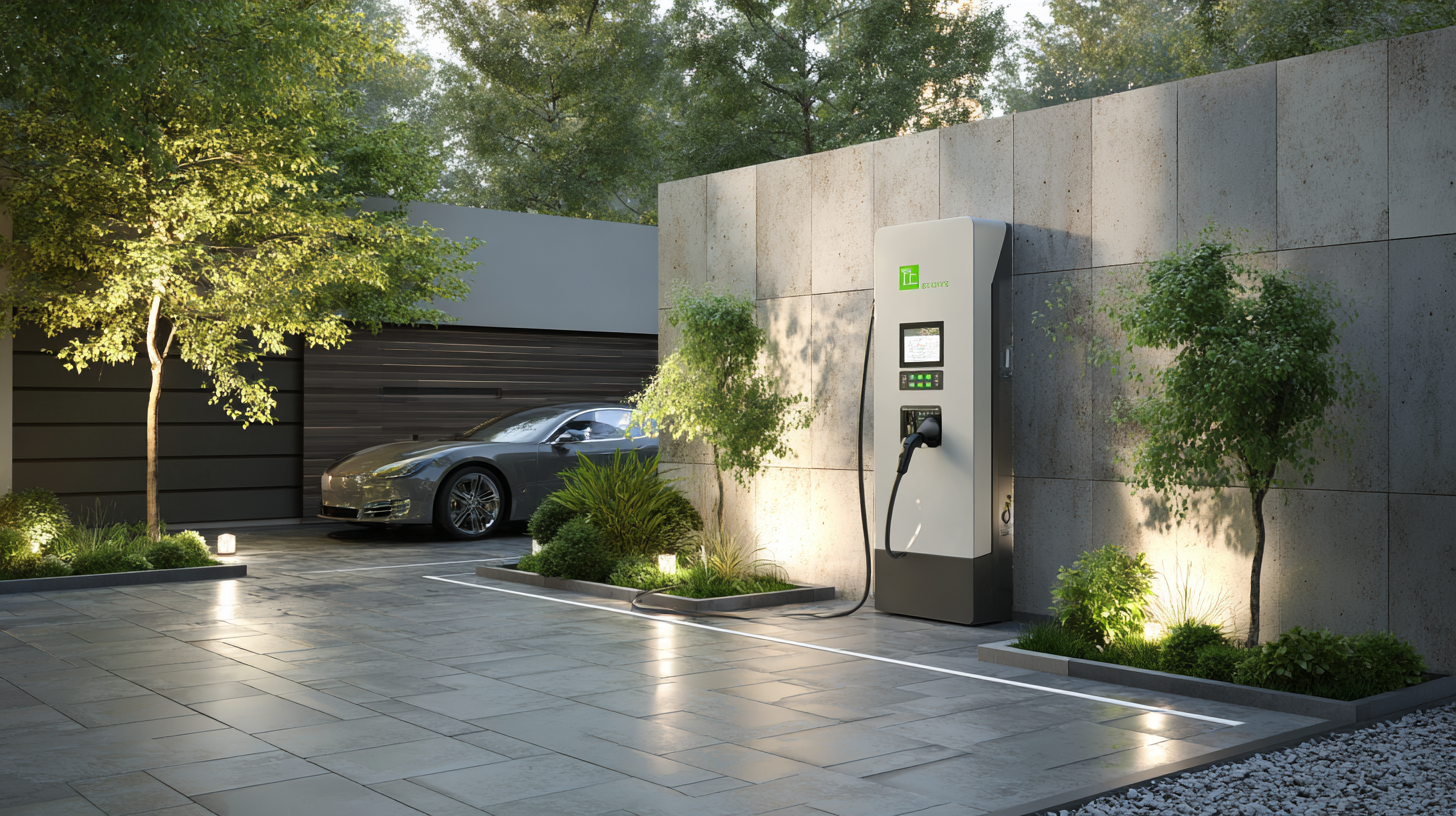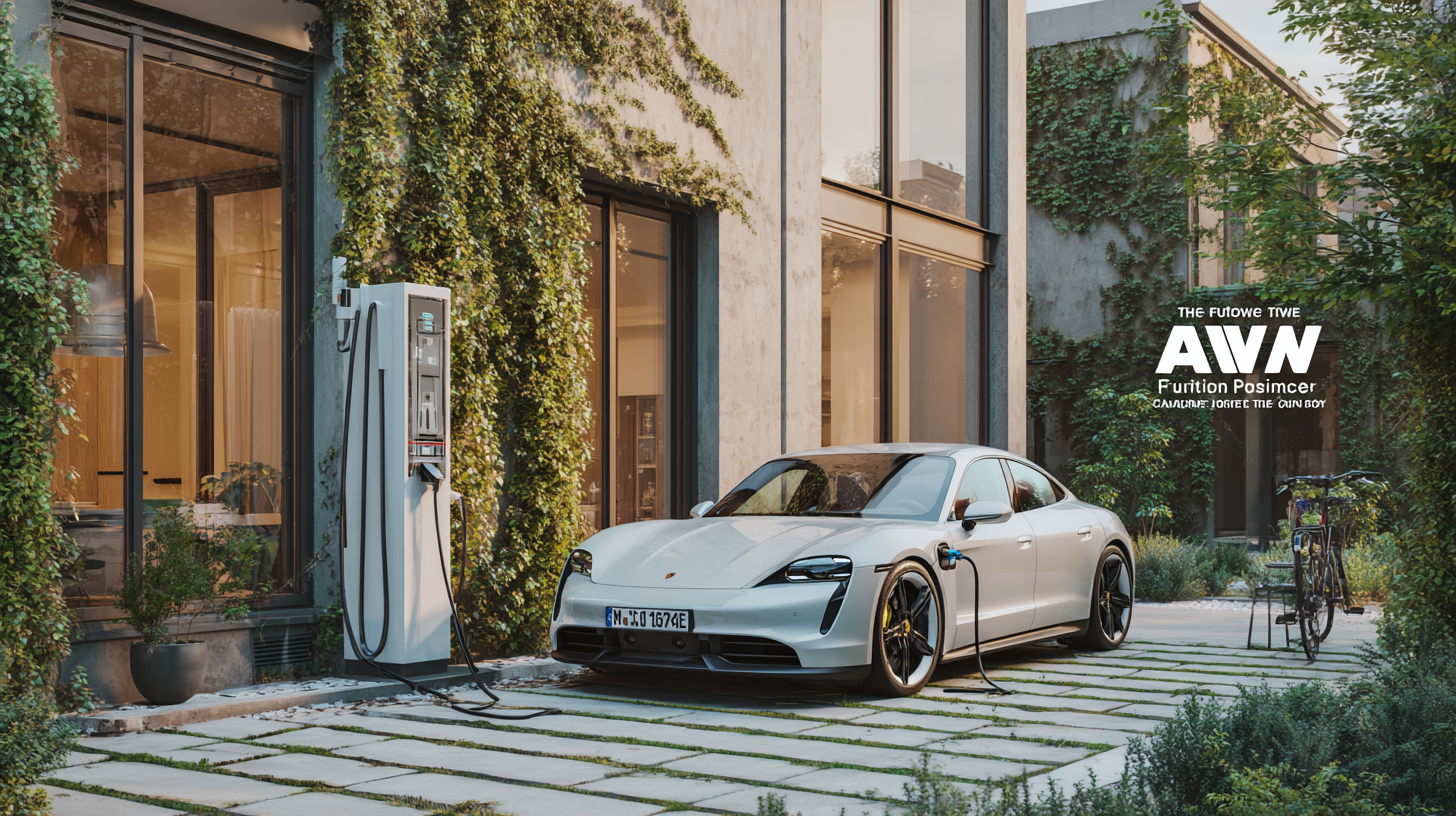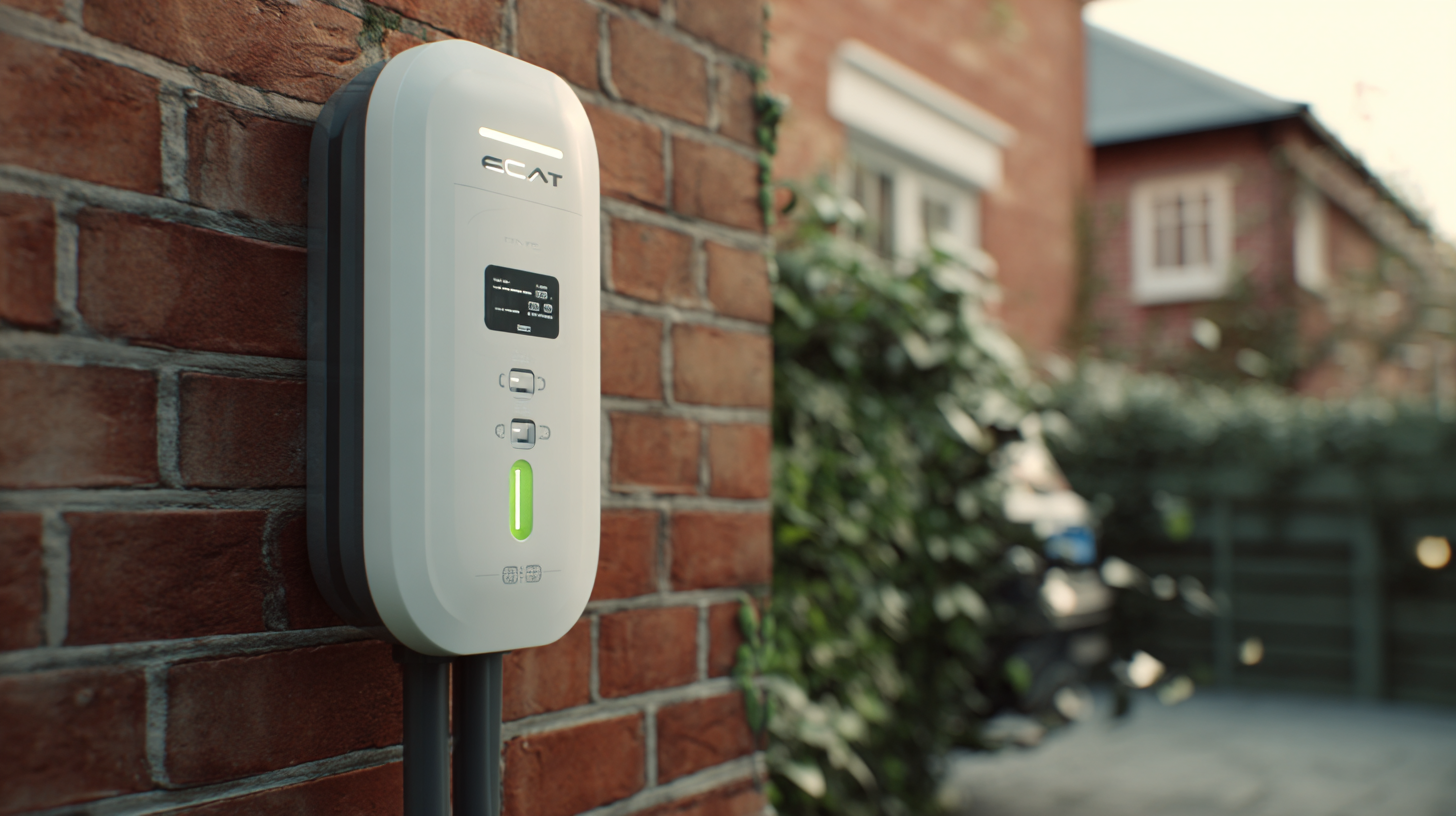The Future of Sustainable Home Car Charging Points: Innovating for Tomorrow's Eco-Driven Journeys
As electric vehicles (EVs) continue to revolutionize transportation, the importance of having a reliable and sustainable Home Car Charging Point becomes increasingly crucial for eco-conscious consumers. With the rising demand for electric mobility, homeowners are seeking innovative solutions that not only minimize their carbon footprint but also enhance the convenience of charging their vehicles.

This blog will explore the future of sustainable home car charging solutions, highlighting cutting-edge technologies, practical tips for installation and maintenance, and the significance of integrating renewable energy sources. By embracing these advancements, homeowners can contribute to a cleaner environment while ensuring their journeys are powered by greener energy, paving the way for a sustainable future in personal transportation.
Join us as we delve into the innovations shaping the landscape of home car charging points for tomorrow's eco-driven journeys.
The Importance of Sustainable Home Car Charging Points in a Green Economy
As the world shifts towards a greener economy, the significance of sustainable home car charging points becomes increasingly evident. According to a report by the International Energy Agency (IEA), electric vehicle (EV) sales surged by 40% in 2020, with projections estimating that over 145 million electric cars could be on the road by 2030. This rapid growth underscores the urgent need for efficient charging infrastructure that not only supports EV users but also aligns with sustainability goals.
Sustainable home car charging points play a pivotal role by utilizing renewable energy sources, ultimately reducing the carbon footprint of EVs. A 2022 study by the Renewable Energy Association revealed that charging EVs at home using solar energy can cut emissions by up to 70% compared to traditional fossil fuel cars. Furthermore, integrating smart technology in home charging systems can optimize energy usage, allowing users to charge their vehicles during off-peak hours when energy is cleaner and cheaper. As households become more eco-conscious, investing in sustainable charging points presents an opportunity to contribute to a greener future while enhancing energy efficiency.
Key Innovations Shaping the Future of Home EV Charging Solutions
The rapid growth of electric vehicle (EV) adoption is reshaping the landscape of home charging solutions. According to a report from the International Energy Agency (IEA), global electric car stock surpassed 10 million in 2020, a figure that has nearly doubled within just a year. This surge underscores the pressing need for innovative home charging points that cater to eco-conscious consumers seeking convenience and sustainability.

One of the key innovations gaining traction is the integration of solar energy systems with home EV chargers. Research by the Solar Energy Industries Association (SEIA) indicates that pairing solar panels with EV charging can reduce energy costs and carbon footprints significantly. Furthermore, smart charging technology is on the rise, enabling users to optimize energy use by charging during off-peak hours and even selling energy back to the grid. The European Union estimates that implementing such technologies could lead to a 20% increase in charging efficiency by 2030, making home charging not just sustainable but also economically advantageous. Together, these advancements are paving the way for a future where home charging solutions are both eco-friendly and user-centric.
Comparative Analysis: Level 1 vs. Level 2 Charging Stations for Home Use
As electric vehicles (EVs) gain traction, the infrastructure for home charging is becoming increasingly vital.
A comparative analysis of Level 1 and Level 2 charging stations reveals significant differences in protocols, technologies, and safety requirements.
 Level 1 chargers utilize standard 120-volt outlets, making them widely accessible but typically slower, providing about 3-5 miles of range per hour of charging.
In contrast, Level 2 chargers operate on 240 volts, enabling a much faster charging rate of approximately 10-60 miles of range per hour, which can be essential for those with higher daily mileage needs.
Level 1 chargers utilize standard 120-volt outlets, making them widely accessible but typically slower, providing about 3-5 miles of range per hour of charging.
In contrast, Level 2 chargers operate on 240 volts, enabling a much faster charging rate of approximately 10-60 miles of range per hour, which can be essential for those with higher daily mileage needs.
The economic implications of choosing between these charging options are noteworthy. According to the 2024 U.S. Electric Vehicle Experience (EVX) Home Charging Study by J.D. Power, home charging satisfaction remains a bright spot among EV owners, suggesting that many find the investment in home charging worthwhile.
Furthermore, as operators look to optimize their EV charging networks, studies on levelized costs in Europe indicate that while public fast-charging stations are crucial to support EV growth, their profitability remains uncertain.
The demand for more accessible charging points bolsters the argument for greater integration of Level 2 stations within residential settings, aligning with the broader shift towards sustainable eco-driven journeys.
The Role of Renewable Energy in Enhancing Home Car Charging Efficiency
As the adoption of electric vehicles (EVs) continues to rise, the efficiency of home car charging points becomes increasingly critical. A key aspect of this efficiency is the integration of renewable energy sources, which can significantly enhance the charging process while minimizing the carbon footprint. By harnessing solar panels or wind turbines, homeowners can generate their own clean energy, enabling them to charge their EVs without relying on conventional electricity that might be produced from fossil fuels. This shift not only reduces energy costs in the long run but also supports a more sustainable ecosystem.
Incorporating smart technology is another vital facet of optimizing home car charging. Innovations like smart charging stations can intelligently manage energy use by scheduling charging times when renewable energy generation is at its peak. This ensures that vehicles are charged when the energy supplied is both abundant and sustainable. Additionally, these systems can facilitate energy storage solutions, allowing homeowners to store excess renewable energy for later use, thus improving overall efficiency and further reducing reliance on the grid. By embracing these advancements, eco-conscious consumers can lead the way toward a greener future.
The Future of Sustainable Home Car Charging Points: Innovating for Tomorrow's Eco-Driven Journeys
| Charging Point Type | Power Output (kW) | Renewable Energy Source | Average Charging Time (hours) | Annual CO2 Savings (kg) |
|---|---|---|---|---|
| Level 1 Charging | 1.4 | Solar Panels | 8-12 | 500 |
| Level 2 Charging | 7.2 | Wind Turbines | 4-6 | 1000 |
| DC Fast Charging | 50 | Geothermal Energy | 30+ | 2000 |
| Wireless Charging | 3.6 | Hydropower | 8-10 | 600 |
| Smart Charging Stations | 22 | Solar + Wind | 2-4 | 1500 |
Trends in Consumer Adoption of Eco-Friendly Charging Technologies for Electric Vehicles
As the electric vehicle (EV) market continues to expand, the consumer adoption of eco-friendly charging technologies is becoming a pivotal trend. More homeowners are recognizing the importance of sustainable energy solutions, prompting a surge in the installation of home charging points powered by renewable sources. The integration of solar panels with EV charging systems not only allows users to reduce their carbon footprint but also offers significant savings on energy costs over time. This shift towards self-sufficient energy generation reflects a growing commitment to sustainability among consumers.
Additionally, advancements in charging technology are further encouraging adoption. Smart charging solutions, which enable users to optimize charging times based on energy costs and availability, have gained traction. These innovations provide a user-friendly experience while maximizing the environmental benefits associated with EV usage. Furthermore, incentive programs from governments and utilities aimed at encouraging the use of sustainable technologies are playing a crucial role in making eco-friendly charging solutions more accessible and appealing to homeowners. As these trends converge, the future of sustainable home car charging points looks promising, shaping a cleaner and more efficient journey for every driver.
The Future of Sustainable Home Car Charging Points: Trends in Consumer Adoption
This chart illustrates the increasing consumer adoption rate of eco-friendly charging technologies for electric vehicles from 2019 to 2023. As shown, there is a significant upward trend in adoption rates, reflecting the growing emphasis on sustainable home car charging solutions in the context of eco-driven journeys.
